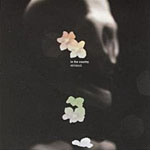Home » Jazz Articles » Interview » Weasel Walter: Revolt
Weasel Walter: Revolt
AAJ: You've mentioned working with Vinny Golia, too—that's definitely happening as far as a release?
WW: We first played together on the Healing Force record, which was Henry Kaiser's thing [Cuneiform, 2007]—I was just a sideman on that. Vinny is a very underrated musician, and he's so good that people ignore him, and he's a virtuoso on every single-reed instrument known to man. He's unbelievable; my thing was to push him really hard and make him go off. We made a trio record with Damon Smith that is just total intense free jazz from beginning to end. He plays mostly bass saxophone and sopranino on it, so it's got a really crazy palette. I'm proud of it.
 AAJ: Is the ugExplode label going to continue with small-edition CD-Rs and LPs?
AAJ: Is the ugExplode label going to continue with small-edition CD-Rs and LPs?
WW: Well, the LP [Oculus ex Abyssus, 2008] was a failure—the demand wasn't there and it had a financial impact on me, and I didn't break even. That dissuaded me from doing that again anytime soon, though if there is more demand, it might happen. The way the market is, not many people are paying for music anymore. It's really hard to sell music now, and other people agree with me. Stuff that I think is top-of-the-line, I'll do CDs for until it's unfeasible. The rough snapshots and live recordings will be in the CD-R format with a mini-gatefold. A lot of people don't value that format, but I'm trying to package it in a way that will make clear the value that I put on the contents. The key is, they're things that won't even sell 100 copies—the scale meets the demand.
Nobody wants to pay for anything—paying for music is an obsolete thing. It puts a musician like me in a tough position—I'm not one who can draw well in any town in the world, and I'm not someone who can sell records. I'm at a crossroads in terms of making any money from my music.
AAJ: Do you have a day job?
WW: I do freelance music-related projects, but it's impossible to make any sort of living doing this music. I wear a lot of hats and work hard, and I have a lot of help from friends, so that's what's worked. Of course, it's easier to do when you're younger.
So how do I make people care about my music? That's why I think the answer is to be more original and daring—there are people at the high and low end and a lot at the middle. I'd rather listen to what's at the ends of the spectrum—excellent or shitty music—than anything in the middle.
AAJ: As a writer, trying to make a case for the value of record number whatever can be very difficult.
WW: You're in a tough position, sure—there's a lot of "just okay" music out there. It's time for you guys—critics—to take control and say, "I'm going to stand up for and define something and be an arbiter," instead of demand that everything gets recognition. It's not the way it used to be—criticism meant something because it was a filter. We need a sieve to filter all this crap, because not everything people do is great just because they did it. That's what got us to this point—it's so egalitarian that nothing means anything. You could be the Beatles and people would be blase. Everybody is overloaded; if one wants to stick out from the pack it is by standing up for music that one believes in, rather than writing about whatever hits the desk.
AAJ: Many writers have a day job and not a lot of time. The things they choose to write about are the things they find really cool, and hell, even a bunch of the good stuff doesn't get covered—it can't.
WW: This is just a whole can of worms being opened here, but you know that. Music was easier to deal with when there were fewer choices—the reason why an artist like me can fall through the cracks is because this is a numbers game. There's too much music. It doesn't matter, and until things aren't as saturated, a lot of people doing interesting things aren't going to be noticed. The recognition just isn't there.
AAJ: Even when a writer goes around singing the praises of somebody like [drummer] Huseyin Ertunc, it's not clear how many people listen.
WW: That's the thing that you've got to do, though, because it can't be about numbers. That's why, in a way, it's easy because the status quo is so pathetic that you can do something different and it won't stir things up. The creative choices are simple in some regards. Ultimately, you just have to find the right shelf to put things on, and it's a struggle and you might not be received, but that's the nature of things in this climate.
AAJ: Or you can make a new shelf.
WW: Yes, but that's the hardest thing you can do—you have to understand that it's going to be a pain in the ass the whole time. If you know it's important and believe that, it's how you got to do it. The climate is in a sorry, sad state right now and it needs people to come in and change things because it's so pathetic. If you go back and examine those you look up to, they all went through this very same process to some degree, at least for some of their career—nobody cared, nobody wanted to hear it. Well, I don't know about you, but I'm glad that these artists put up with it because the results speak for themselves. It's a path most people walk down—and the older you get the more you realize that, "Oh, those people—they don't know their ass from their underwear, so why would I get upset if they don't recognize me?" I know what I'm doing—I get out of bed every day and do this. Like Lou Reed said about Metal Machine Music—"My day beats your year." I can totally relate to that.
Selected Discography
Weasel Walter, Apokalyptic Paranoia (Gaffer, 2009)
Weasel Walter/Damon Smith/Henry Kaiser, Plane Crash (ugExplode, 2009)
Weasel Walter/Mary Halvorson, Opulence (ugExplode, 2008)
Weasel Walter, Firestorm (ugExplode, 2007)
The Flying Luttenbachers, Incarceration by Abstraction (ugExplode, 2007)
Healing Force, The Songs of Albert Ayler (Cuneiform, 2007)
XBXRX, Sixth in Sixes (Polyvinyl, 2005)
The Flying Luttenbachers, Trauma (ugExplode, 2001)
The Flying Luttenbachers, Revenge (ugExplode, 1996)
The Flying Luttenbachers, Destroy All Music (ugExplode, 1995)
Photo Credits
Performance Collage: AJZ
Performance Photo: Torsten Meyer
All Other Photos: Nondor Nevai
Tags
PREVIOUS / NEXT
Support All About Jazz
 All About Jazz has been a pillar of jazz since 1995, championing it as an art form and, more importantly, supporting the musicians who make it. Our enduring commitment has made "AAJ" one of the most culturally important websites of its kind, read by hundreds of thousands of fans, musicians and industry figures every month.
All About Jazz has been a pillar of jazz since 1995, championing it as an art form and, more importantly, supporting the musicians who make it. Our enduring commitment has made "AAJ" one of the most culturally important websites of its kind, read by hundreds of thousands of fans, musicians and industry figures every month.
























